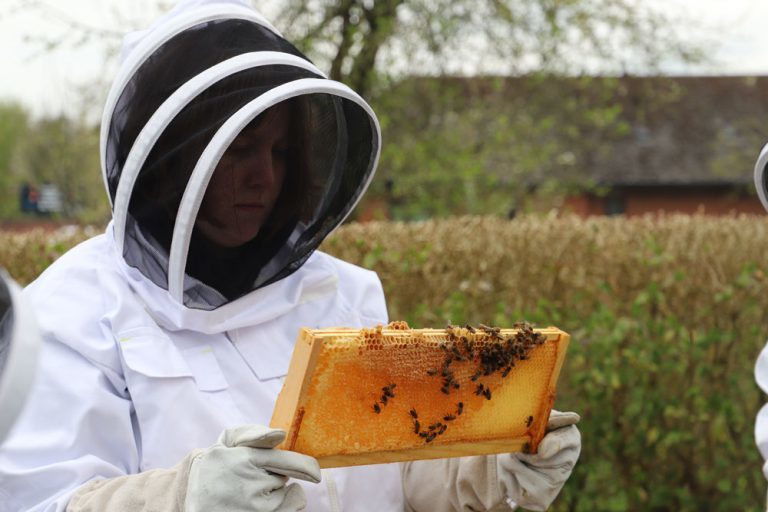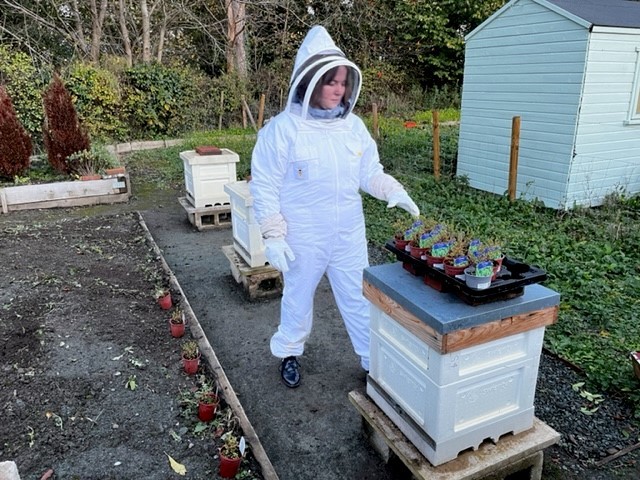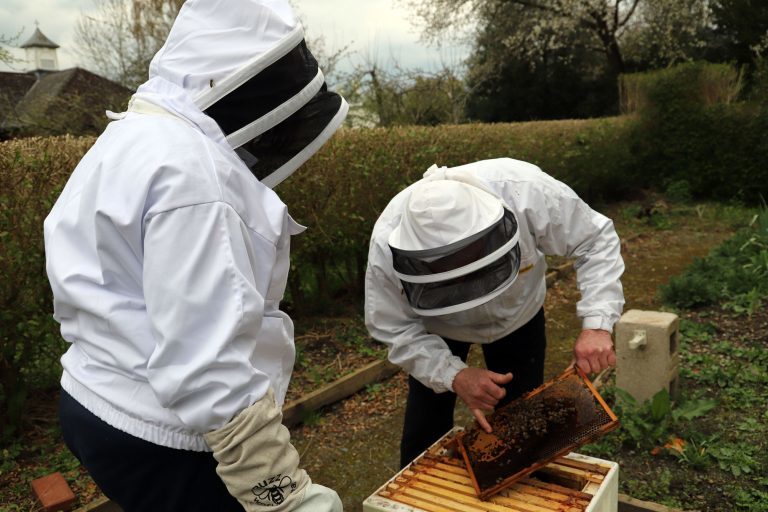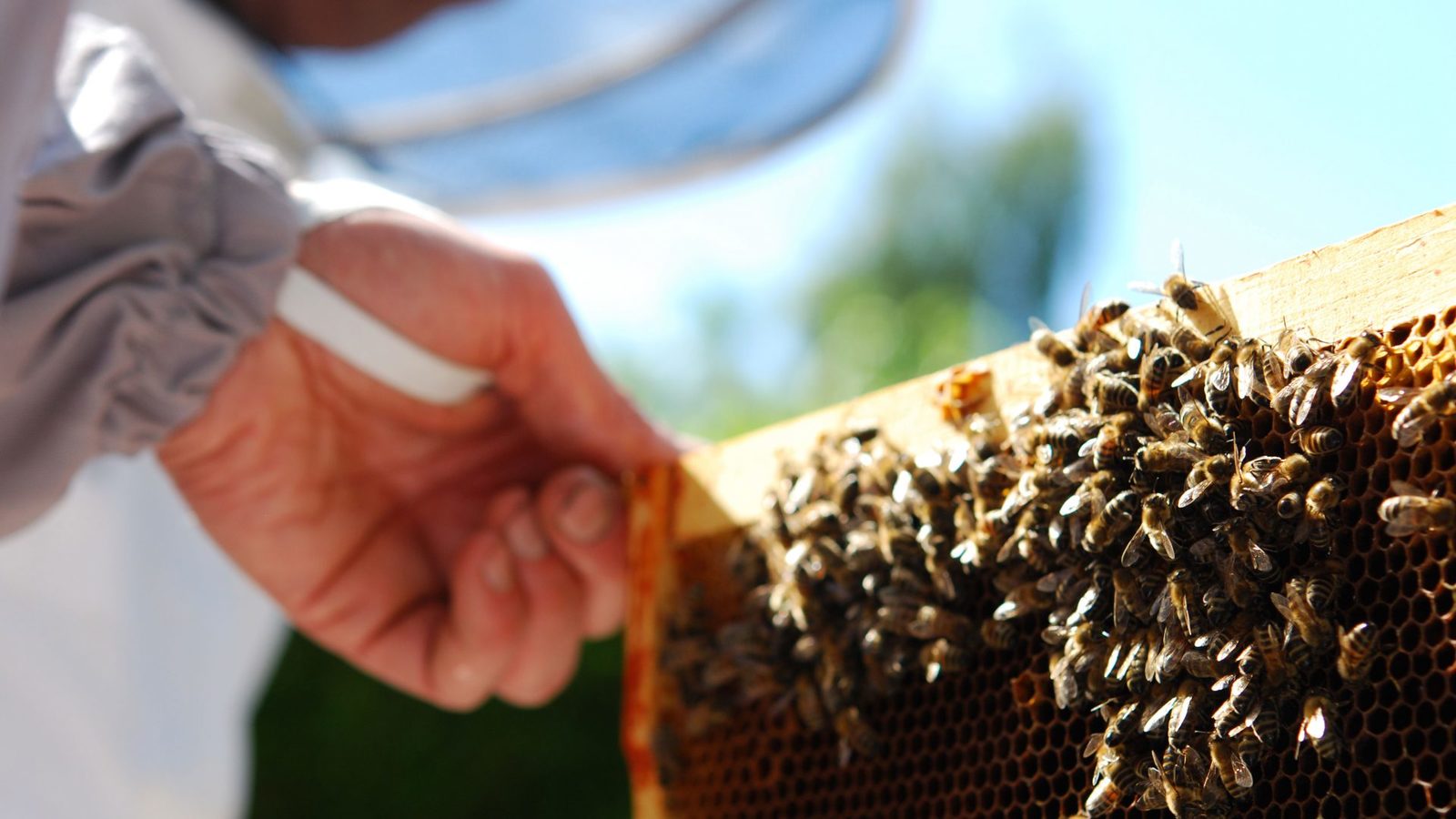Derwen College has works in partnership with WoodMor Foundation to create a beekeeping programme for our students to develop employability skills.
In July 2022, we received our three colonies of bees. These provide an unique learning opportunity for our students.
Derwen College’s horticulture team set up a beekeeping shed and three hives where our European honey bees now live (in an area which students named ‘McGregor’s Garden’).
How bees provide learning opportunities
The unique project offers an exciting specialist work experience opportunity for students at Derwen, particularly for those who have joined the College’s Bee Club. At Bee Club students learn all about the life of a colony: how to look after the bees, keep them healthy, and harvest honey whilst still ensuring they have enough to stores to ensure a robust colony.

Bee warned though! Bee Club is not for everyone, students who attend have to be calm and confident around the bees. Members of the club are quite literally hands-on with the bees, opening the hives, inspecting the frames and getting up close to these fascinating insects.
However, students don’t have to join Bee Club to feel the benefit of having them on-site. The positive impact of having our own hives is far more extensive than just learning skills at Bee Club.
Opportunities from keeping bees are wide reaching:
- Horticulture students learn how to create habitat to give the bees a range of year round flowers.
- Meanwhile hospitality and food students create delicious recipes with the honey harvested from our hives.
- For retail and enterprise students, they are able to work on the more commercial aspects – selling the honey and beeswax products in the Garden Centre and Gift Shop, or at local markets.
Bee Club
 As the weather warms up, Derwen College’s beekeepers have been checking up on our three beehives donated via our partnership with WoodMor Foundation; making sure our bee colonies are safe, clean, happy and well-fed.
As the weather warms up, Derwen College’s beekeepers have been checking up on our three beehives donated via our partnership with WoodMor Foundation; making sure our bee colonies are safe, clean, happy and well-fed.
Student beekeepers Sophie and Thomas, along with staff beekeepers Will and Trevor, recently opened up the hives to observe whether the bees were doing well.
Kitted out in beekeeping suits and hats, the Beekeeping Club team cleaned up the hives, and took out the blocks of fondant icing which had been feeding the Derwen bees through the winter. With near-by fields of rapeseed in full flower, as well as fruit tree blossom in the College orchard, there is plenty of nectar and pollen for the bees to enjoy in the great outdoors.
Though they don’t hibernate, honey bees rarely leave the hive during winter. They cluster together, preserving energy and keeping warm. They start making honey again when the weather improves in spring, when the temperatures reach around 16 degrees or above.
Students Sophie and Thomas have embraced Bee Club, and will be creating video diaries of their journey into beekeeping.
Sponsorship opportunities
We invite companies to take part in annual hive sponsorship, to support the project and the opportunities if offers our students. In return you can expect to receive:
 Bee greeting cards
Bee greeting cards- Wildflower seed mix
- A name plaque on the hive
- 1 jar of Derwen honey
- Promotion in the press, newsletter and on social media and our website.
For more information please contact our Fundraiser Meg Charman on 01691 661234 ext 395, or email megan.charman@derwen.ac.uk.
BeeTV
BeeTV information will be updated shortly.

